Review of Tout Va Bien
Introduction
Oh dear. I hate penning reviews like this one. Maverick French new wave filmmaker Jean Luc Godard has made some impressively creative movies, never letting standard cinematic language and convention get in the way of a good idea. But like all courageous creative artists, the results of such experimentation can be variable. `Tout Va Bein` is disappointing in this regard, and doubly so because the results are so crushingly dull.
Made in 1972, this is certainly a product of the era. Free love and hippy idealism was beginning to wane, particularly in Western Europe, and a new and depressingly grey reality was taking hold. It was perhaps this bleak existentialism that fuelled this strange and depressing tale, with the right having regained control after the 1968 riots in France.
Godard cast an unapologetically left-wing ensemble for the movie, but was clearly terrified of the inevitable criticism levelled at him for casting international stars like Jane Fonda into the movie. So the film starts with Godard writing cheques - for all the many expenses involved in producing a movie. And halfway through the film we see a depiction of Godard himself (via his cast) defend his decision to produce commercials as a way of making a living. It all feels like he `protesteth too much` and that some of the movie`s political sensibility is a product of his guilt.
Godard wrote the movie, but relied on the help of co-Director Jean-Pierre Gorin to pull its many strands together into a cohesive piece. Jane Fonda (barely recognisable from `Barbarella`) plays an American journalist who is married to a film-maker, Yves Montand, who has been reduced to making commercials for a living. (I know the feeling!). It`s clear that their relationship is disintegrating.
They visit a sausage factory to film a report, where the manager has been taken hostage by general workers. With left-wing tendencies, they naturally side with the exploited workers, though it becomes more and more apparent that the workers demands are getting increasingly extreme and that they are no better than their self-serving bosses. Which is all a little odd as it becomes unclear where Godard`s own sympathies lie. By the end of the movie, with the strikers being led away by the police, you`re left wondering whether there`s any intended irony to the title (loosely translated as `All`s well that ends well`). It just seems to suggest that everyone is as bad as everyone else, and that man can never really develop a true community spirit. In short - everyone is out for themselves. Which is why the spirit of `68 died so shockingly - as discussed fairly unsubtly by Fonda and Montand.
The plot builds with little tension or excitement and there`s a depressingly `real-life` feel to the picture that just makes it a tedious watch. Perhaps marginally more tedious still are Fonda and Montand`s monologues where they ruminate on how things have played out since 1968.
The movie is a grab bag of ideas which just don`t quite mesh. It`s working too hard to deliver a right-on feminist viewpoint one minute, whilst espousing the virtues of Maoist leftism the next, and then onto a critique of modern day filmmaking which would have been more than adequate for a 90-minute film. And on top of that we`re supposed to care about a crumbling relationship that seems to be based on political compatibility more then any genuine humanity or passion.
There are one or two innovative ideas here that may please film study tutors (like the cutaway building staging for example) though in the main part these do little to compensate for the film`s tedium.
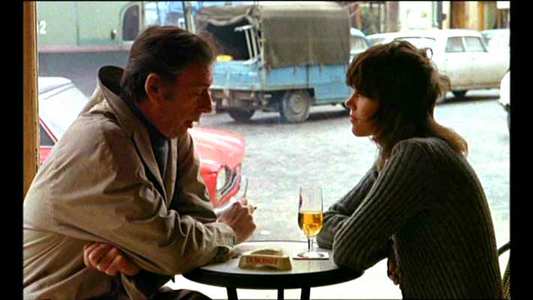
Video
A perfectly adequate transfer of a relatively low-budget movie. This has the usual dark grain that was a popular grading feature of the day.
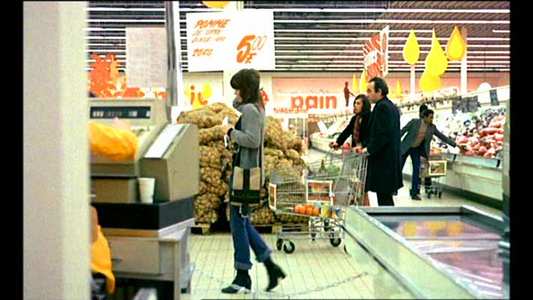
Audio
No better or worse than you might expect from a low-budget European film of the period; particularly one so unlikely to attract the Yankee-dollar. A little tinny in places with some of the wide shots really needing some post, but clearly not getting any.
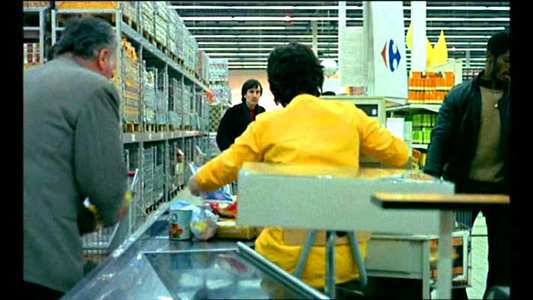
Features
Unlike the US release, there are no extras on this edition.
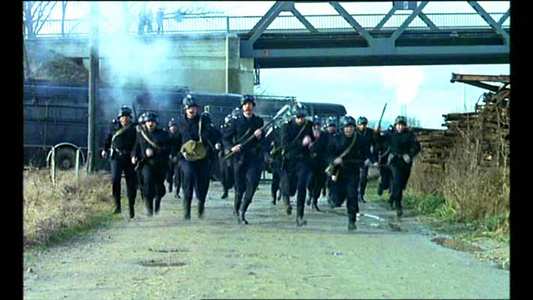
Conclusion
This `no frills` release could equally be termed `no thrills` as it`s singularly the most tedious movie I`ve watched this year. When you consider that this is a movie created (written and partly directed) by Godard, it`s all a bit of a disappointment really.
It seems to be a film more concerned with political posturing than in communicating effectively. For some it may press some of the right buttons, and there are certainly some thoughts that I sympathised with within it. But it`s incredibly tiresome and despite some innovative inserts and ideas, it somehow fails to ignite. Instead, it mopes along just screaming for you to either hit the stop button or at the very least the 20x FFWD.
In some respects it is a product of its time with Jane Fonda firmly establishing her left-wing affiliations and Godard indulging too many ideas in a single movie.
Whatever the case, it`s as dull as dishwater and will entertain no one except the most dedicated followers of Godard or those with a special interest in politically fuelled art cinema from the early seventies.
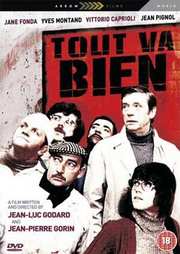












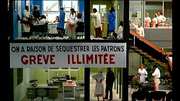



































Your Opinions and Comments
Be the first to post a comment!